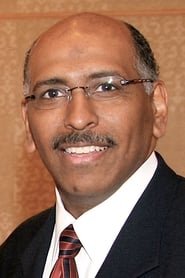
Ask Your Own Question
What is the plot?
The episode opens with Symone Sanders Townsend standing at the anchor desk, her expression tense as she introduces the night's lead story: escalating unrest in Chicago following a series of controversial police actions. The camera cuts to a montage of chaotic street footage--agents in military-style uniforms chasing civilians, tear gas clouds billowing near schools, and confrontations between law enforcement and angry onlookers. Townsend narrates over the footage, detailing how these agents, not officially part of the military, have been deployed in civilian neighborhoods, leading to confusion and violence.
Alicia Menendez joins the segment, her voice sharp with urgency as she reports that eyewitnesses describe agents crashing into cars, wrestling people to the ground without clear protocol, and randomly aiming weapons at civilians through rolled-down windows. Menendez emphasizes that these agents appear to be improvising, lacking proper training, and that their actions have provoked outrage from both residents and local police. She cites multiple incidents where agents gassed Chicago cops, further escalating tensions.
Michael Steele appears on screen, his demeanor calm but his words pointed. He explains that the agents' uniforms and tactics are designed to project authority, but their lack of discipline and clear command structure has led to dangerous situations. Steele recounts a specific incident where agents, after chasing a cyclist, lost control of their vehicle and crashed into a parked car, then fled the scene. He notes that the agents' actions have been widely criticized as reckless and unprofessional.
The show cuts to a live interview with a Chicago resident, who describes being randomly stopped by agents while walking home from work. The resident recounts how agents surrounded him, demanded identification, and then released him without explanation. He expresses fear and confusion, stating that he felt like he was in a war zone rather than his own neighborhood.
Townsend returns to the anchor desk, her voice rising with frustration as she reports that the use of tear gas has become routine, with agents deploying it in multiple neighborhoods throughout the day. She highlights that schools have been affected, with children exposed to the gas, and that local authorities are struggling to contain the situation. Townsend then introduces a clip from a local news report showing agents gassing a group of protesters outside a school, with parents and teachers shouting in protest.
Menendez follows up with a segment on the political fallout, detailing how city officials have condemned the agents' actions and called for federal intervention. She reports that the mayor of Chicago has issued a statement demanding that the agents be removed from the city and that an investigation be launched into their conduct. Menendez also notes that some local police officers have refused to cooperate with the agents, citing safety concerns.
Steele provides historical context, explaining that the deployment of agents in military-style uniforms is unprecedented in recent U.S. history. He draws parallels to past incidents of federal overreach and warns that the current situation could set a dangerous precedent. Steele emphasizes that the agents' lack of accountability and clear chain of command is a major concern.
The show then shifts to a panel discussion, with Townsend, Menendez, and Steele debating the implications of the agents' actions. Townsend argues that the situation reflects a broader erosion of trust between law enforcement and the communities they serve. Menendez counters that the agents' behavior is not just a matter of trust but a violation of civil rights. Steele stresses the need for transparency and oversight, warning that without it, the situation could spiral out of control.
The episode concludes with Townsend delivering a closing statement, her voice steady but resolute. She reiterates the importance of holding those in power accountable and calls on viewers to stay informed and engaged. The camera lingers on her face as the credits roll, the tension palpable.
Related Titles
Browse All Titles →What is the ending?
There are no available search results or detailed information specifically describing the ending of "The Weeknight," season 1, episode 61 titled "July 31, 2025," produced in 2025. The search results primarily reference unrelated shows, podcasts, or general information about other programs and do not provide a plot summary or ending details for this particular episode.
Therefore, I cannot provide a factual or narrative description of the ending of that episode based on the current data. If you have access to the episode or additional sources, please share them, and I can help analyze or summarize the content accordingly.
Is there a post-credit scene?
There is no post-credits scene in The Weeknight, Season 1, Episode 61 titled "July 31, 2025." The episode concludes with the standard closing credits sequence, featuring the show's theme music and the names of the cast and crew, without any additional footage, interviews, or narrative segments following the credits.
What are the key moments involving Symone Sanders Townsend in The Weeknight, Season 1, Episode 61 'July 31, 2025'?
In the episode 'July 31, 2025' of The Weeknight, Symone Sanders Townsend is noted for her passionate and intense style of discussion, sometimes bordering on yelling, as she attempts to make her points forcefully. This episode features her engaging in one-on-one conversations with politicians and newsmakers, reflecting her role as a prominent host on the show.
How does Michael Steele contribute to the dynamics of the panel in this episode?
Michael Steele serves as the quasi-elder statesman of the panel in this episode, providing a seasoned perspective that contrasts with the younger hosts. His presence adds a layer of experience and authority to the discussions, balancing the energy and viewpoints of his co-hosts.
What specific political topics or guests are featured in the 'July 31, 2025' episode?
The episode includes discussions with political figures such as Rep. Jamie Raskin (D-MD), who addresses recent comments from President Donald Trump about constitutional duties. The show covers current political controversies and breaking issues of the day, reflecting its focus on timely political discourse.
What is Alicia Menendez's role and style in this episode?
Alicia Menendez acts as the 'point guard' of the show, skillfully setting up her co-hosts and contributors to shine during discussions. Her role involves facilitating conversations and ensuring a smooth flow of dialogue among the panelists and guests.
Are there any notable production or visual elements unique to this episode?
Yes, the visual presentation of The Weeknight in this episode is distinctive, with camera angles positioned unusually close to the panel desk, sometimes showing the cameras themselves on screen. The set features a circular table, which differs from other news shows and enhances on-screen visuals by allowing better interaction among hosts.
Is this family friendly?
The episode "July 31, 2025" of The Weeknight, Season 1, Episode 61, does not have publicly available detailed parental guidance or content warnings specific to that episode. There is no explicit information indicating it is unsuitable for children or sensitive viewers, but also no formal family-friendly certification or detailed content rating has been documented yet.
Because of this lack of specific content guidance, it is unclear if there are any potentially objectionable or upsetting scenes such as violence, strong language, sexual content, or intense themes in this particular episode. Without spoilers or detailed content notes, it is safest to consider that some material might be present but unconfirmed.
If you are looking for strictly family-friendly shows, other series explicitly noted for clean, family-appropriate content include titles like "Just Add Magic" or "Phineas and Ferb," which are known for their suitability for children and sensitive viewers.
In summary, no specific warnings or objections are documented for this episode, but the absence of a formal rating or parental guide means caution is advised for very young or sensitive viewers.















